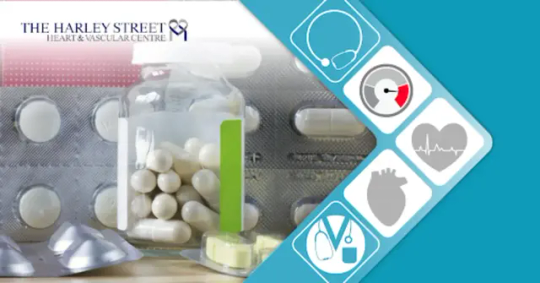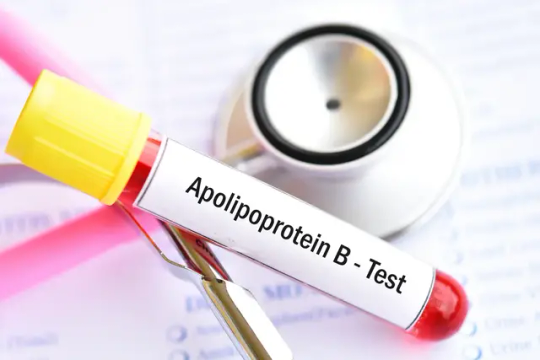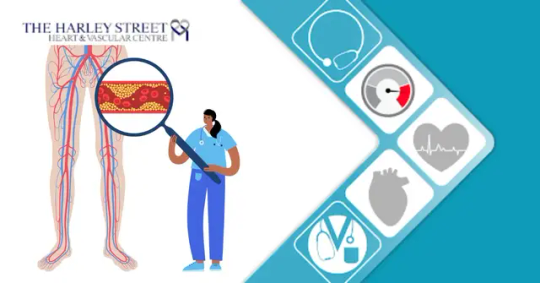Don't wanna be here? Send us removal request.
Text
PCSK9 Inhibitors

High cholesterol levels, especially elevated low-density lipoprotein cholesterol (LDL-C), are a major risk factor for cardiovascular diseases, including heart attacks and strokes. While statins and lifestyle changes remain the cornerstone of cholesterol management, not everyone achieves their target cholesterol levels with these approaches. For such cases, PCSK9 inhibitors provide a revolutionary option.
This detailed guide explores the benefits, potential side effects, and what patients can expect when prescribed PCSK9 inhibitors, all presented educationally and engagingly.
#pcsk9 inhibitors#heart health#heart disease#cholesterol levels#cholesterol#cardiology#theharleystreetheart#harleystreetsg
0 notes
Text
PCSK9 Inhibitors and Atherosclerosis

Atherosclerosis, a condition marked by the buildup of plaques in the arteries, is a leading cause of cardiovascular diseases like heart attacks and strokes. The condition often develops silently over decades, with high levels of low-density lipoprotein cholesterol (LDL-C) playing a pivotal role in forming and progressing arterial plaques.
With advancements in medicine, PCSK9 inhibitors��have emerged as powerful tools for combating high LDL-C levels and reducing the risk of atherosclerosis. These innovative cholesterol-lowering drugs help manage cardiovascular risk and target one of the root causes of plaque buildup in arteries.
In this detailed guide, we’ll explore the relationship between PCSK9 inhibitors and atherosclerosis, how these drugs work, their benefits, and how they fit into the broader picture of cardiovascular health management.
#PCSK9 Inhibitors and Atherosclerosis#heart health#heart disease#cardiology#plaques in the artery#strokes#heart attacks#ldl c#theharleystreetheart#harleystreetsg
0 notes
Text
PCSK9 Inhibitors vs. Statins

Cholesterol management has long been a cornerstone of cardiovascular health care. High levels of low-density lipoprotein cholesterol (LDL-C), often termed "bad cholesterol," are a major contributor to heart disease, stroke, and other cardiovascular complications. Statins have traditionally been the first-line treatment for lowering LDL-C levels. However, with the advent of PCSK9 inhibitors, a newer class of cholesterol-lowering drugs, patients now have additional options for managing cholesterol levels effectively.
In this comprehensive guide, we’ll explore the differences between PCSK9 inhibitors vs statins, how they work, their advantages, potential side effects, and which option might be best for different individuals.
#PCSK9 inhibitors vs statins#heart health#heart disease#heart check#cardiology#theharleystreetheart#harleystreetsg
0 notes
Text
What Are PCSK9 Inhibitors

High cholesterol is a common health concern that significantly increases the risk of cardiovascular diseases, including heart attacks and strokes. While many people successfully manage cholesterol levels with lifestyle changes and medications like statins, some individuals need more advanced options to achieve optimal cholesterol control. This is where PCSK9 inhibitors come in — a breakthrough in cholesterol-lowering treatment.
In this guide, we'll explore what are PCSK9 inhibitors, how they work, who can benefit from them, their advantages, side effects, and more.
#what are PCSK9 inhibitors#heart disease#heart health#heart checkup#cardiology#cardiologist in singapore#harleystreetsg
0 notes
Text
The Connection Between Diabetes and Heart Disease

Diabetes and heart disease are two of the most common chronic conditions worldwide, and they are closely linked. People with diabetes, especially type 2 diabetes, are at a much higher risk of developing cardiovascular diseases (CVD), including heart attacks, strokes, and coronary artery disease (CAD). This connection is due to the impact that diabetes has on the body’s blood vessels and heart health. This article will explore the relationship between diabetes and heart disease, how to recognise risk factors, and what can be done to mitigate the risks.
0 notes
Text
Stroke

A stroke is a life-threatening medical condition that occurs when the blood supply to a part of the brain is interrupted or reduced. This disruption prevents brain tissue from receiving essential oxygen and nutrients, leading to the death of brain cells within minutes. Acute strokes are a leading cause of death and disability worldwide, yet they are often preventable with proper education, lifestyle changes, and timely medical intervention.
#stroke#harleystreetsg#heart disease#heart health#blocked artery#cardiology#cardiologists in singapore
0 notes
Text
How to Lower Your Cholesterol Naturally

Cholesterol is an essential component of your body, but when levels get too high—particularly LDL (low-density lipoprotein)—it can lead to significant health problems such as heart disease, strokes, and other cardiovascular issues. The good news is that there are natural and sustainable ways to manage your cholesterol levels; the bad news is that they can often only change the numbers by a small amount. If you're wondering how to lower your cholesterol naturally, this guide will provide detailed, actionable tips on achieving it through diet, exercise, and lifestyle changes.
0 notes
Text
ApoB Test: How It's Done and What to Expect

As awareness about heart disease grows, there is an increasing focus on more precise diagnostic tools to assess heart health. Among these is the ApoB test, a relatively recent addition that provides valuable information about your risk of cardiovascular disease. Understanding what an ApoB test is, how it’s done, and what you can expect during the process is essential for anyone looking to take charge of their heart health. This article will break down the entire process of the ApoB test, explaining its importance, how the procedure is carried out, and what the results mean for you.
0 notes
Text
ApoB vs LDL-C

Heart disease is the leading cause of death globally, with millions of people at risk due to factors such as poor diet, lack of exercise, smoking, and family history. For decades, cardiologists worldwide and in Singapore have relied on measuring LDL-C, or low-density lipoprotein cholesterol, as a key indicator of cardiovascular risk. However, in recent years, another player has entered the scene: Apolipoprotein B (ApoB), a protein that can provide more specific information about a person's heart disease risk.
This comprehensive article explores the differences between ApoB vs LDL-C, evaluates their roles in predicting heart disease, and discusses why one might be more useful for assessing heart health.
0 notes
Text
How Sleep Affects Your Heart Health

Sleep is a fundamental component of overall health, influencing various bodily functions, including heart health. While we often consider sleep essential for rest and recovery, its role in cardiovascular health is equally crucial. Poor sleep or sleep disorders can have significant implications for your heart, increasing the risk of heart disease, hypertension, and other cardiovascular conditions. This guide delves into how sleep affects your heart health and offers actionable tips for improving sleep to protect your cardiovascular system.
0 notes
Text
Peripheral Arterial Disease (PAD)

Peripheral Arterial Disease (PAD) is a common circulatory condition that affects millions of people worldwide. Often underdiagnosed, PAD can lead to severe health complications, including an increased risk of heart attack, stroke, and limb amputations. This guide will cover PAD's symptoms, causes, diagnosis, treatment, prevention, and risk management.
0 notes
Text
What is an ApoB Test?

Cholesterol and heart health are major concerns for many individuals, especially those with a family history of heart disease or other cardiovascular conditions. While most people are familiar with standard cholesterol tests that measure LDL and HDL, one important test that often goes under the radar is the ApoB test. But what is the ApoB test? This test offers deeper insights into your cardiovascular risk by examining a specific type of protein associated with cholesterol particles.
0 notes
Text
High Cholesterol: A Comprehensive Guide for Heart Health

Cholesterol is often misunderstood. While it's crucial for many bodily functions, rising too high can pose a significant risk to heart health. This comprehensive guide aims to explain everything about high cholesterol—what it is, its causes, symptoms, treatment options, and preventive measures. Understanding how to manage and lower cholesterol can help you take control of your cardiovascular health.
0 notes
Text
ELECTROCARDIOGRAM (ECG) in Singapore

An electrocardiogram also known as an ECG or EKG, is a test that records the heart's electrical activity. It is a simple straightforward, painless test and non-invasive procedure that helps doctors diagnose and monitor various heart conditions. In Singapore, ECG tests are widely available and can be done at hospitals, clinics, and specialised cardiology centres.
0 notes
Text
5 Causes of Chest Pain Unrelated to the Heart
Chest pain is a common symptom that can cause significant anxiety and concern, as it is often associated with heart problems. However, not all chest pain is related to heart disease. Non-cardiac chest pain or NCCP is a type of chest pain that originates from the chest but is not related to the heart. This condition can be caused by a variety of factors, including musculoskeletal issues, pulmonary disorders, esophageal disorders, gastrointestinal problems, and psychological factors.
It is important to understand the underlying causes of non-cardiac chest pain to accurately diagnose and treat the condition. A proper diagnosis can help alleviate anxiety and provide relief to patients who may be experiencing debilitating chest pain. In some cases, treatment for patients with NCCP may be as simple as making simple lifestyle changes or taking medication, while in other cases, further testing or referral to a specialist may be necessary. As such, healthcare professionals must thoroughly evaluate NCCP patients to ensure proper diagnosis and management of the condition.

on-cardiac chest pain is a medical term used to describe chest pains that are not caused by heart disease. One of the most common causes is muscular-type pains, but what are the other causes?
5 Causes of Non-cardiac Chest Pains
Multiple conditions can cause non-cardiac chest pains. Often, these non-cardiac causes may include gastrointestinal disorders (stomach-related), esophageal disorders (esophagus-related), musculoskeletal disorders (muscle-related), pulmonary disorders (lung-related), or psychological disorders such as anxiety and stress.
What Are the Risks of Non-cardiac Chest Pain?
The risks of non-cardiac chest pain depend on the underlying cause. However, some common risks of non-cardiac chest pain include:
Anxiety
Depression
Sleep problems
Reduced quality of life
What Should I Do if I Have Non-cardiac Chest Pain?
If you have non-cardiac chest pain, it is important to see a doctor to get a diagnosis and treatment. Do not ignore chest pain, even if you think it is not caused by a heart problem. Untreated non-cardiac chest pain can lead to serious complications, such as anxiety and depression.
Conclusion
If you have chest pain, it is best to seek a reputable and experienced heart doctor in Singapore such as The Harley Street Heart and Vascular Centre. In fact, our job as cardiologists is to work out what the cause of your chest pain is. The frightening symptoms of chest pains might not mean the presence of heart disease. Once your cardiologist confirms the absence of heart disease, he/she may direct you to a primary care physician or to a gastroenterology or respiratory specialist for their expert opinion.
For a more comprehensive insight into this topic, we encourage you to explore this page.
0 notes
Text
24-HOUR AMBULATORY BLOOD PRESSURE MONITORING
Ambulatory Blood Pressure Monitoring (ABPM) is a painless non-invasive method to obtain blood pressure (BP) recordings over a 24-hour period usually requested by your cardiologist in Singapore and around the world. It involves wearing a small arm cuff around the non-dominant arm, which is then attached to a small monitoring device worn on a belt fastened around the waist. The arm cuff will automatically inflate at regular intervals every 15 – 30 minutes throughout the day and hourly after 11 pm. The readings can then be used to determine whether the person requires medication for high blood pressure or if the current medication is having the desired effect. You may proceed to book an appointment or contact us for further details.

Now that we know the basics of the Ambulatory Blood Pressure Monitoring (ABPM) cardiac test that is offered by The Harley Street Heart & Vascular Centre. Let’s dive deeper into this.
What is 24-Hour Ambulatory Blood Pressure Monitoring?
24-hour ambulatory blood pressure monitoring is a medical procedure that involves the continuous measurement of blood pressure over a 24-hour period. It is considered to be a more accurate method of measuring blood pressure than traditional office-based measurements since it takes into account the natural fluctuations of blood pressure that occur throughout the day and night. This blood pressure measurement method is important for individuals who may have white-coat hypertension or masked hypertension, meaning their blood pressure is only elevated when measured in a clinical setting.
In fact, this 24-hour monitoring can provide a more accurate representation of your true blood pressure. The monitoring is achieved with a small, portable device that is attached to the patient's arm, which they wear throughout the day and night. The device measures your blood pressure at regular intervals, usually every 15 to 30 minutes, and stores the readings for later analysis. The benefits of this procedure include the ability to diagnose and monitor hypertension with greater precision and the ability to adjust treatment plans based on accurate, around-the-clock measurements. Overall, 24-hour ABPM is a non-invasive and effective method of monitoring blood pressure throughout the day that is increasingly used in clinical practice.
Are There Any Risks or Complications Associated With 24-hour Ambulatory Blood Pressure Monitoring?
This test is considered very safe, and there are no significant risks or complications associated with it. However, some people may experience minor bruising or discomfort around the area where the monitor was attached.
Can I Go to Work With a 24-hour Blood Pressure Monitor?
It is possible to go to work with a 24-hour blood pressure monitor, but it may depend on the type of work you do. If your job involves physical activity or heavy lifting, it may interfere with the readings of the monitor. It is best to consult with your doctor to determine if it is safe to wear the monitor while working and if any adjustments need to be made to your work responsibilities during the monitoring period. Additionally, you may need to inform your employer about the medical device you are wearing to avoid any safety concerns or misunderstandings.
Can Ambulatory Blood Pressure Monitoring Be Done at Home?
Yes, ambulatory blood pressure monitoring can be done at home with a portable monitor that is worn for a period of 24 hours or longer and you may go about your normal daily activities as there are generally no risks involved.
Conclusion
24-hour ambulatory blood pressure monitoring is a valuable tool for assessing blood pressure. It can provide a more accurate picture of your average blood pressure over the course of a day, including during sleep. This information can help your cardiologist diagnose and manage high blood pressure and other cardiovascular conditions. Book your appointment with the best cardiologists in Singapore available at The Harley Street Heart & Vascular Centre.
Kindly refer to this blog page for a more detailed and comprehensive understanding of this topic.
0 notes
Text
Health Check-Up In Singapore
A health check-up in Singapore is an important step in keeping up to date on your current health. During a health check-up, your doctor can ensure that you are healthy and check on any health issues.

What Is A Health Check-Up?
A health check-up is a series of tests performed by your doctor to assess your overall health. Health check-ups are essential in catching problems whilst they are still treatable via preventative healthcare.
Importance Of Health Check-Ups In Singapore
The importance of health check-ups in Singapore is that it is essential for understanding your overall health. Preventative healthcare allows your doctor to understand and treat problems before they become untreatable. By attending regular health check-ups, you are able to keep up to date on your health and spend less time worrying about possible symptoms. A 2023 study showed that only 59% of Singapore residents expect to live healthily past the age of 80. An important part of ensuring that people live longer, happier lives is continuing to attend regular health check-ups.
Benefits Of Health Check-Ups
There are a number of benefits to attending health check-ups with a reputable medical institution in Singapore such as The Harley Street Heart & Vascular Centre.
Early Detection Of Health Problems
Most serious diseases or conditions can be treated or mitigated if they are caught early. Whether via treatment or lifestyle changes, life-threatening problems are manageable with the correct information.
Prevention Of Chronic Diseases
Similarly, by attending health check-ups, your doctor can notice early signs of chronic diseases. In many cases, early detection ensures that between you and your doctor, you can prevent the disease from taking root.
Reduction Of Healthcare Costs
Treating diseases and conditions not only takes up your time and energy but it incurs regular and consistent costs. By addressing health issues before they become problematic, you can significantly reduce healthcare costs now and in the future.
Peace Of Mind For Individuals And Their Families
Finding out that your family member has a deadly disease can be a great strain on a family. Health check-ups allow family members to understand their current health condition on a regular basis.
What Are the Recommended Health Check-Ups in Singapore?
In Singapore, the Ministry of Health (MOH) has established guidelines for recommended health check-ups based on age and gender. Normally, health check-ups in Singapore include measurements such as blood pressure, height, weight, and body mass index (BMI). It may also involve tests for cholesterol levels, blood glucose, and kidney and liver function. This screening is generally recommended for adults aged 40 years and above, or earlier for individuals with specific risk factors.
How Often Should I Go for a Health Check-up in Singapore?
You should book a health check-up in a reputable medical institution such as The Harley Street Heart & Vascular Centre every 3 years if you do not have any underlying medical condition.
Where Can I Get Affordable Health Check-Ups in Singapore?
At The Harley Street Heart & Vascular Centre in Singapore, a wide range of affordable health check-up packages are available.
How Long Does a Health Check-up Take in Singapore?
Generally, a health check-up in Singapore takes around 20-30 minutes.
Read more in-depth information of this article on our blog page.
0 notes